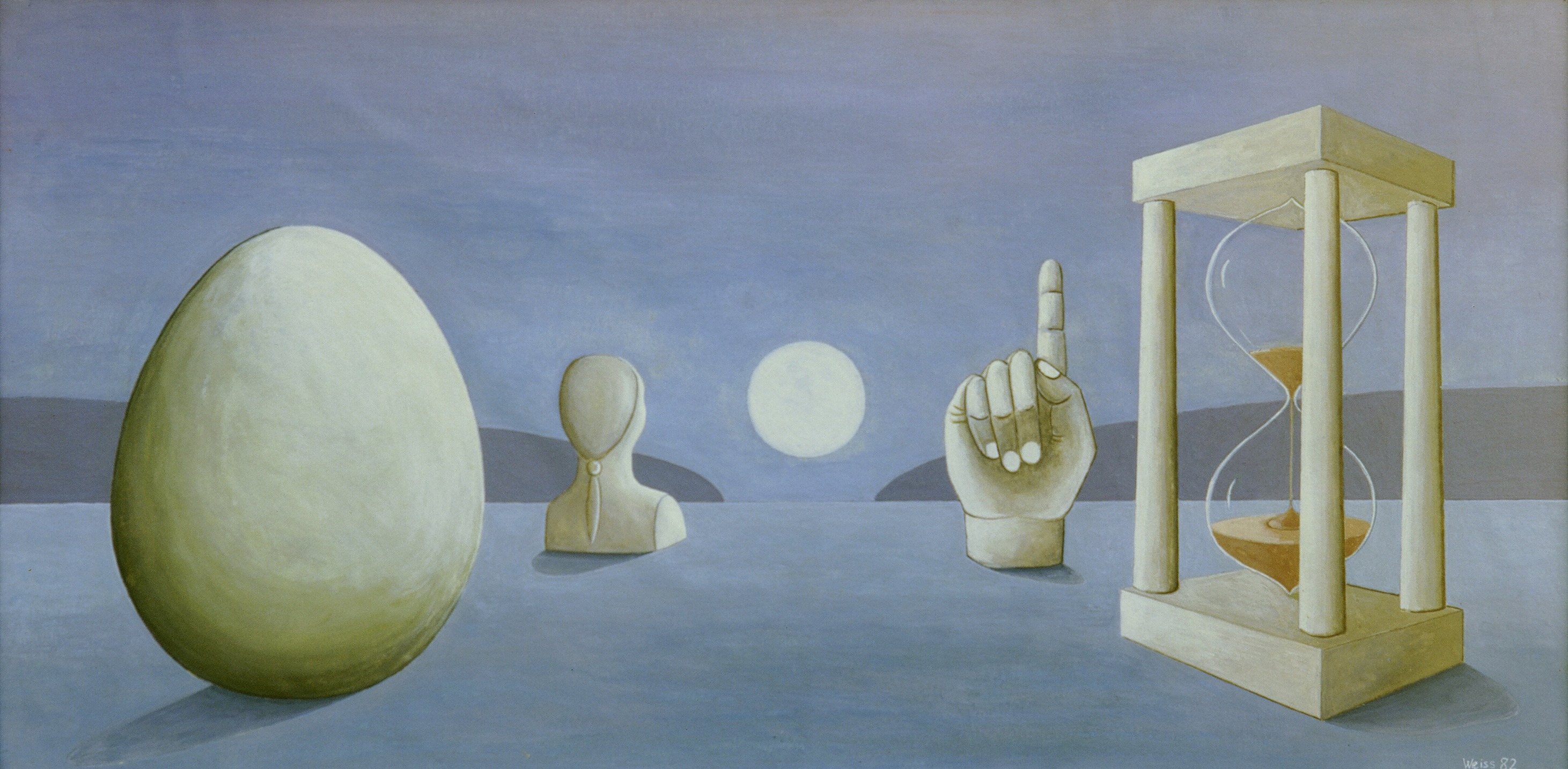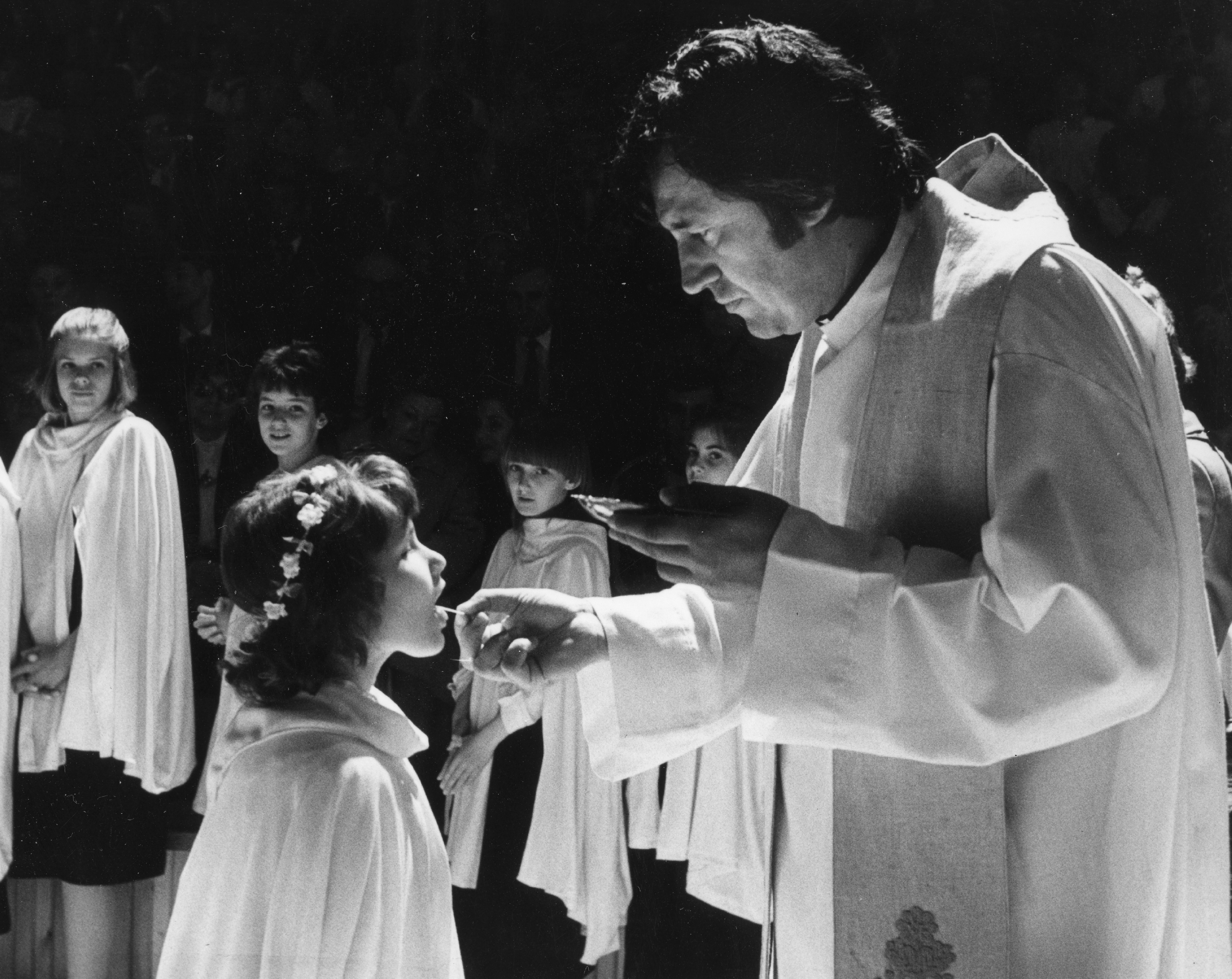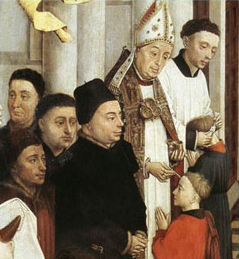|
Alfredo Cremonesi
Alfredo Cremonesi (15 May 19027 February 1953) was an Italian Roman Catholic priest of the Pontifical Institute for Foreign Missions. He studied in Crema and Milan before setting off from Genoa to Naples and then to the Burmese missions via boat. He pledged that he would never return to the Italian mainland and spent the remainder of his life working with the Burmese people in mountain villages despite the great difficulties he faced. Cremonesi was also a prisoner of the Japanese during World War II after the Japanese occupied the nation. The Burmese independence reached in 1948 prompted guerrilla conflict which caused great unrest and destruction to the point that Cremonesi and other missionaries were forced into exile so as to remain safe. But he reached out to the guerillas and received their permission to return to the village he worked in. It was also there in that village that government forces mistook him for a rebel - or a supporter of the rebels - and shot him dead al ... [...More Info...] [...Related Items...] OR: [Wikipedia] [Google] [Baidu] |
Beatification
Beatification (from Latin ''beatus'', "blessed" and ''facere'', "to make”) is a recognition accorded by the Catholic Church of a deceased person's entrance into Heaven and capacity to intercede on behalf of individuals who pray in their name. ''Beati'' is the plural form, referring to those who have undergone the process of beatification; they possess the title of "Blessed" (abbreviation "Bl.") before their names and are often referred to in English as "a Blessed" or, plurally, "Blesseds". History Local bishops had the power of beatifying until 1634, when Pope Urban VIII, in the apostolic constitution ''Cœlestis Jerusalem'' of 6 July, reserved the power of beatifying to the Holy See. Since the reforms of 1983, as a rule, one miracle must be confirmed to have taken place through the intercession of the person to be beatified. Miracles are almost always unexplainable medical healings, and are scientifically investigated by commissions comprising physicians and theologi ... [...More Info...] [...Related Items...] OR: [Wikipedia] [Google] [Baidu] |
Naples
Naples (; it, Napoli ; nap, Napule ), from grc, Νεάπολις, Neápolis, lit=new city. is the regional capital of Campania and the third-largest city of Italy, after Rome and Milan, with a population of 909,048 within the city's administrative limits as of 2022. Metropolitan City of Naples, Its province-level municipality is the third-most populous Metropolitan cities of Italy, metropolitan city in Italy with a population of 3,115,320 residents, and Naples metropolitan area, its metropolitan area stretches beyond the boundaries of the city wall for approximately 20 miles. Founded by Greeks in the 1st millennium BC, first millennium BC, Naples is one of the oldest continuously inhabited urban areas in the world. In the eighth century BC, a colony known as Parthenope ( grc, Παρθενόπη) was established on the Pizzofalcone hill. In the sixth century BC, it was refounded as Neápolis. The city was an important part of Magna Graecia, played a major role in the merging ... [...More Info...] [...Related Items...] OR: [Wikipedia] [Google] [Baidu] |
Religious Education
In secular usage, religious education is the teaching of a particular religion (although in the United Kingdom the term ''religious instruction'' would refer to the teaching of a particular religion, with ''religious education'' referring to teaching about religions in general) and its varied aspects: its beliefs, doctrines, rituals, customs, rites, and personal roles. In Western and secular culture, religious education implies a type of education which is largely separate from academia, and which (generally) regards religious belief as a fundamental tenet and operating modality, as well as a prerequisite for attendance. The secular concept is substantially different from societies that adhere to religious law, wherein "religious education" connotes the dominant academic study, and in typically religious terms, teaches doctrines which define social customs as "laws" and the violations thereof as "crimes", or else misdemeanors requiring punitive correction. The free choice of r ... [...More Info...] [...Related Items...] OR: [Wikipedia] [Google] [Baidu] |
Fascism
Fascism is a far-right, authoritarian, ultra-nationalist political ideology and movement,: "extreme militaristic nationalism, contempt for electoral democracy and political and cultural liberalism, a belief in natural social hierarchy and the rule of elites, and the desire to create a (German: “people’s community”), in which individual interests would be subordinated to the good of the nation" characterized by a dictatorial leader, centralized autocracy, militarism, forcible suppression of opposition, belief in a natural social hierarchy, subordination of individual interests for the perceived good of the nation and race, and strong regimentation of society and the economy. Fascism rose to prominence in early 20th-century Europe. The first fascist movements emerged in Italy during World War I, before spreading to other European countries, most notably Germany. Fascism also had adherents outside of Europe. Opposed to anarchism, democracy, pluralism, liberalism, ... [...More Info...] [...Related Items...] OR: [Wikipedia] [Google] [Baidu] |
First Communion
First Communion is a ceremony in some Christian traditions during which a person of the church first receives the Eucharist. It is most common in many parts of the Latin Church tradition of the Catholic Church, Lutheran Church and Anglican Communion (other ecclesiastical provinces of these denominations administer a congregant's First Communion after they receive baptism and confirmation). In churches that celebrate a rite of First Communion separate from baptism or confirmation, it typically occurs between the ages of seven and thirteen, often acting as a rite of passage. In other denominations first communion ordinarily follows the reception of confirmation, which occurs at some point in adolescence or adulthood, while Eastern Orthodox and Oriental Orthodox Christians first receive the sacrament of Holy Communion in infancy, along with Holy Baptism and Chrismation. Characteristics Catholics believe this event to be very important, as the Eucharist occupies a central role in Cat ... [...More Info...] [...Related Items...] OR: [Wikipedia] [Google] [Baidu] |
Bishop Of Crema
The Diocese of Crema ( la, Dioecesis Cremensis) is a Roman Catholic ecclesiastical territory in Lombardy in northern Italy. It has existed since 1579. It is suffragan to the Archdiocese of Milan."Diocese of Crema" ''''. David M. Cheney. Retrieved October 7, 2016"Diocese of Crema" ''GCatholic.org''. Gabriel Chow. Retrieved October 7, 2016 The seat of the bishop is the cathedral of Santa Maria Assunta. < ...
|
Confirmation (Catholic Church)
Confirmation, in the Catholic Church, is one of the seven sacraments. It is also one of the three sacraments of initiation into the Catholic Church, the other two being Baptism and Holy Communion. Description The ''Catechism of the Catholic Church'' states: It is evident from its celebration that the effect of the sacrament of Confirmation is the special outpouring of the Holy Spirit as once granted to the apostles on the day of Pentecost... Recall then that you have received the spiritual seal, the spirit of wisdom and understanding, the spirit of right judgment and courage, the spirit of knowledge and reverence, the spirit of holy fear in God's presence. Guard what you have received. God the Father has marked you with his sign; Christ the Lord has confirmed you and has placed his pledge, the Spirit, in your hearts. The ''Catechism of the Catholic Church'' sees the account in the Acts of the Apostles as a scriptural basis for Confirmation as a sacrament distinct from Baptism: ... [...More Info...] [...Related Items...] OR: [Wikipedia] [Google] [Baidu] |
Baptism
Baptism (from grc-x-koine, βάπτισμα, váptisma) is a form of ritual purification—a characteristic of many religions throughout time and geography. In Christianity, it is a Christian sacrament of initiation and adoption, almost invariably with the use of water. It may be performed by sprinkling or pouring water on the head, or by immersing in water either partially or completely, traditionally three times, once for each person of the Trinity. The synoptic gospels recount that John the Baptist baptised Jesus. Baptism is considered a sacrament in most churches, and as an ordinance in others. Baptism according to the Trinitarian formula, which is done in most mainstream Christian denominations, is seen as being a basis for Christian ecumenism, the concept of unity amongst Christians. Baptism is also called christening, although some reserve the word "christening" for the baptism of infants. In certain Christian denominations, such as the Lutheran Churches, bapt ... [...More Info...] [...Related Items...] OR: [Wikipedia] [Google] [Baidu] |
Grocer
A grocery store ( AE), grocery shop ( BE) or simply grocery is a store that primarily retails a general range of food products, which may be fresh or packaged. In everyday U.S. usage, however, "grocery store" is a synonym for supermarket, and is not used to refer to other types of stores that sell groceries. In the UK, shops that sell food are distinguished as grocers or grocery shops (though in everyday use, people usually use either the term "supermarket" or a "corner shop" or "convenience shop"). Larger types of stores that sell groceries, such as supermarkets and hypermarkets, usually stock significant amounts of non-food products, such as clothing and household items. Small grocery stores that sell mainly fruit and vegetables are known as greengrocers (Britain) or produce markets (U.S.), and small grocery stores that predominantly sell prepared food, such as candy and snacks, are known as convenience shops or delicatessens. Definition The definition of "grocery store ... [...More Info...] [...Related Items...] OR: [Wikipedia] [Google] [Baidu] |
Pope Francis
Pope Francis ( la, Franciscus; it, Francesco; es, link=, Francisco; born Jorge Mario Bergoglio, 17 December 1936) is the head of the Catholic Church. He has been the bishop of Rome and sovereign of the Vatican City State since 13 March 2013. Francis is the first pope to be a member of the Society of Jesus, the first from the Americas, the first from the Southern Hemisphere, and the first pope from outside Europe since Pope Gregory III, Gregory III, a Syrian who reigned in the 8th century. Born in Buenos Aires, Argentina, Bergoglio worked for a time as a Bouncer (doorman), bouncer and a janitor as a young man before training to be a chemist and working as a technician in a food science laboratory. After recovering from a severe illness, he was inspired to join the Jesuits, Society of Jesus (Jesuits) in 1958. He was ordained a Catholic priest in 1969, and from 1973 to 1979 was the Jesuit provincial superior in Argentina. He became the archbishop of Buenos Aires in 1998 and was ... [...More Info...] [...Related Items...] OR: [Wikipedia] [Google] [Baidu] |
Servant Of God
"Servant of God" is a title used in the Catholic Church to indicate that an individual is on the first step toward possible canonization as a saint. Terminology The expression "servant of God" appears nine times in the Bible, the first five in the Old Testament, the last four in the New Testament, New. The Hebrew Bible refers to "Moses the servant of Elohim" (עֶֽבֶד הָאֱלֹהִ֛ים ''‘eḇeḏ-hā’ĕlōhîm''; , , , and ). , ). refers to Joshua as ''‘eḇeḏ Yahweh'' (עֶ֣בֶד יְהוָ֑ה). The New Testament also describes Moses in this way in (τοῦ δούλου τοῦ Θεοῦ, ''tou doulou tou Theou''). Paul the Apostle, Paul calls himself "a servant of God" in (δοῦλος Θεοῦ, ''doulos Theou''), while Epistle of James, James calls himself "a servant of God and the Lord Jesus Christ" (θεοῦ καὶ κυρίου Ἰησοῦ χριστοῦ δοῦλος, ''Theou kai Kyriou Iēsou Christou doulos'') in . describes "servants of God" ... [...More Info...] [...Related Items...] OR: [Wikipedia] [Google] [Baidu] |


.jpg)




